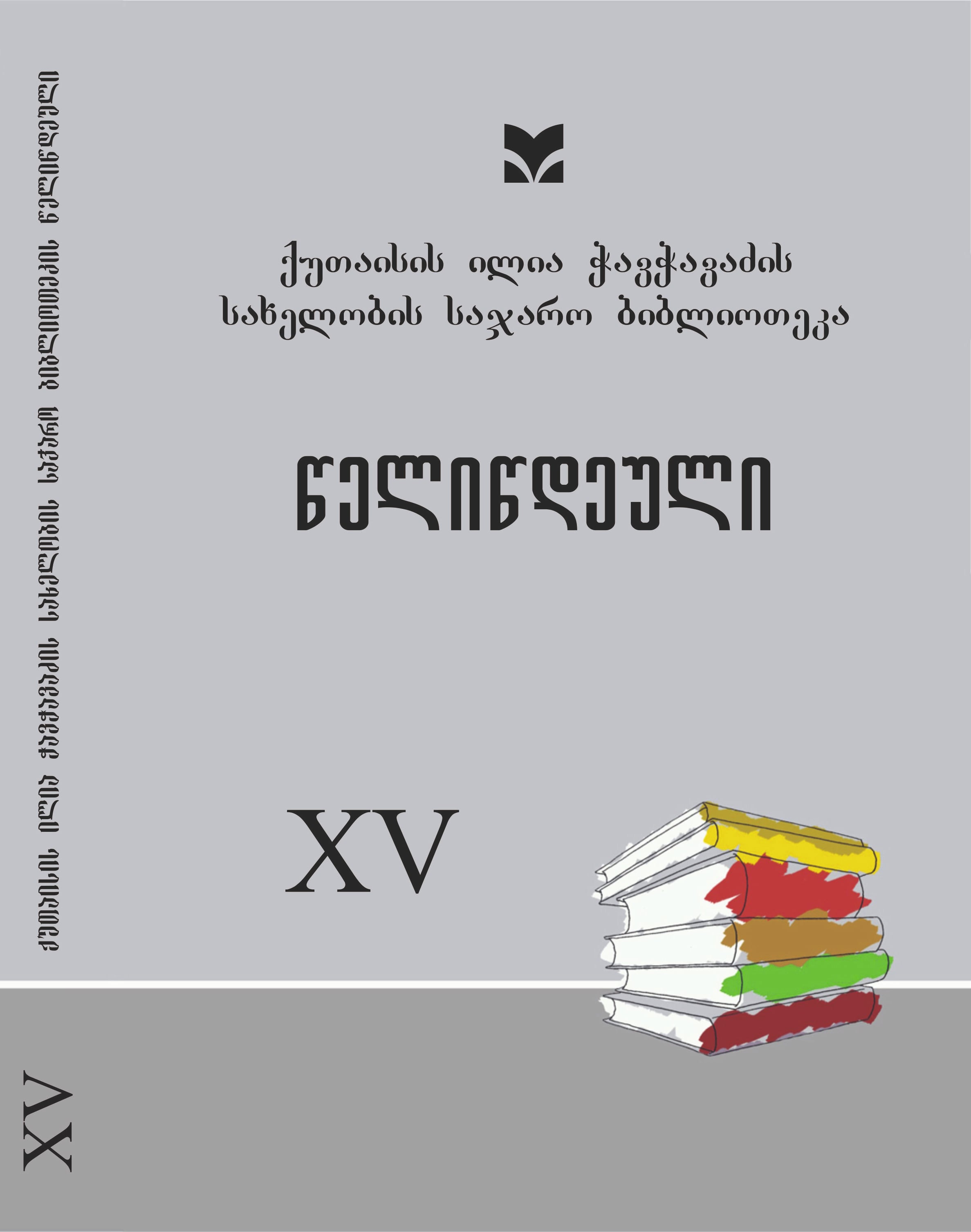Imer vocabulary in Tengiz Topuridze’s book „Ethnographic Notes“
DOI:
https://doi.org/10.61491/yk.15.2023.8071Keywords:
Tengiz Topuridze’s book „Ethnographic Records“, Imeretian vocabulary, ethnolinguistic terminologyAbstract
Tengiz Topuridze, a poet, translator, and civil servant, was born in 1970 in Kutaisi. He graduated from the Faculty of Economics of TSU and the Faculty of Journalism of Kutaisi Multi-Profile Independent University, and later from Tbilisi State Institute of Business. He held leading positions in central and regional governmental structures. Topuridze published his first poems during early childhood. Over time, he served as editor of the literary newspaper „Tsai“, deputy editor of the newspaper „Sportuli Kutaisi“, and co-author of the collection of children’s poems titled „Lile“. His poems, novels, and journalistic letters appeared in Georgian magazines and newspapers, and his poems are featured in the anthology „Georgian Poets of the 1980s-90s“ (2010). Topuridze has also translated works, including a small anthology of Chinese poetry titled „Chinese Landscape Lyrics“ (1998), a collection of Lu Xin’s selected works
„The Call“ (2001), and a management manual „Leadership and Modern Principles of Management“ (2012). In 2017, he was awarded an honorary doctorate in government. In 2017, he left his homeland and currently resides and works in New York.
Recently, he published the book „Ethnographic Notes“, which reflects poignant and affectionate memories of his homeland and past life. The book also delves into the lives of immigrants, examining the loss of native and foreign cultures and ways of life. Notably, Topuridze accurately cites lexical items characteristic of the Imeri/Kutaisi period of the 1980s-90s.
The book includes everyday household vocabulary such as „Servantika „Atamanka“, „Sequoyage“, „Francuskebi“, „Daghvrialeba“, „Maimakh“, „Jligvi“, as well as names of games like „Omobana/Drachdrachobia“, „Bris ili Meow“ „Shtabobana“, „Partisanobana“, „What can the owner of this do“, and „broken phone“. „It also covers card games such as „Pianitsa“, „Kaziol“, „Duraka“, „Achko“ „Konchina“, „Toilet“, „Veryu Ne Veryu“, „Tiri“, predominantly using Russian vocabulary. Additionally, Topuridze discusses the lexicon of teachers and young people characteristic of the 1990s and Soviet times, including phrases like „I dug my stomach“, „I put Na ravne“, „the wolves split up“, „I split them“, „I broke them“ word for word.
The lexemes mentioned above vividly convey the difficult circumstances of the population during that period in our fortunate country and the Georgian language of that time. It’s worth noting that most of the lexemes or words documented in Topuridze’s notes, as analyzed by us, are not documented in published dictionaries. Therefore, this material is a valuable addition to the Georgian dialect dictionary.




